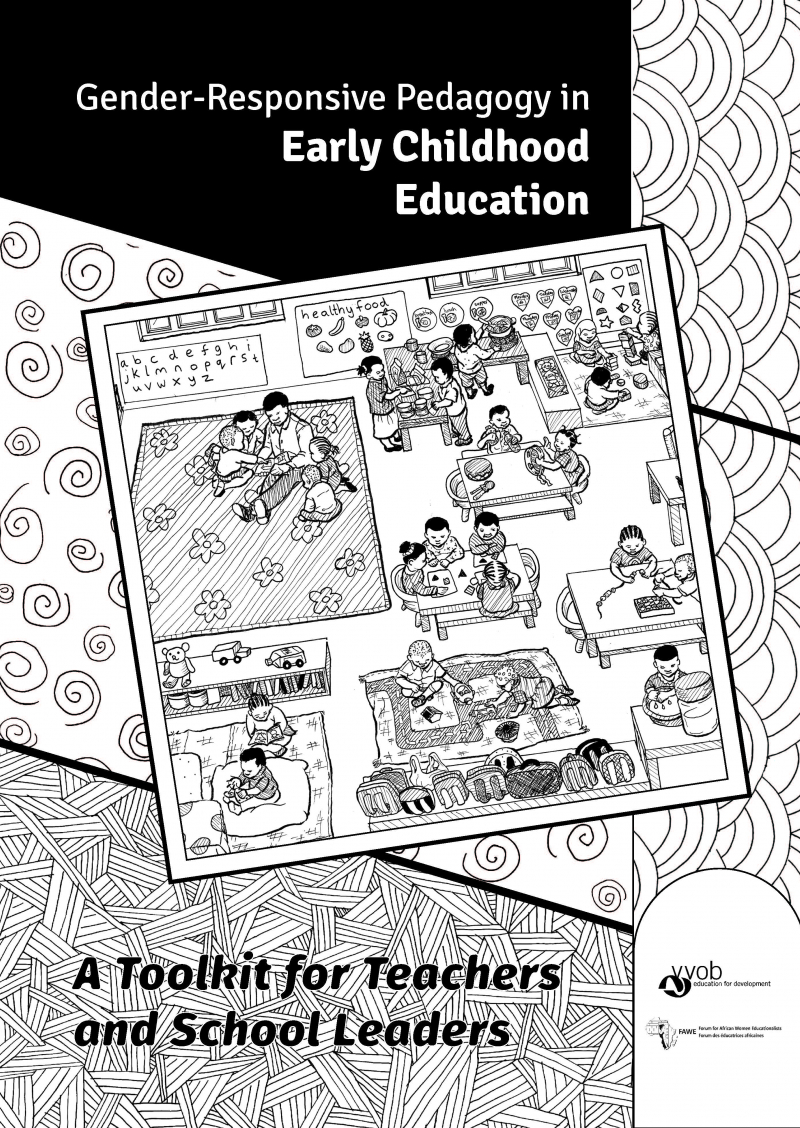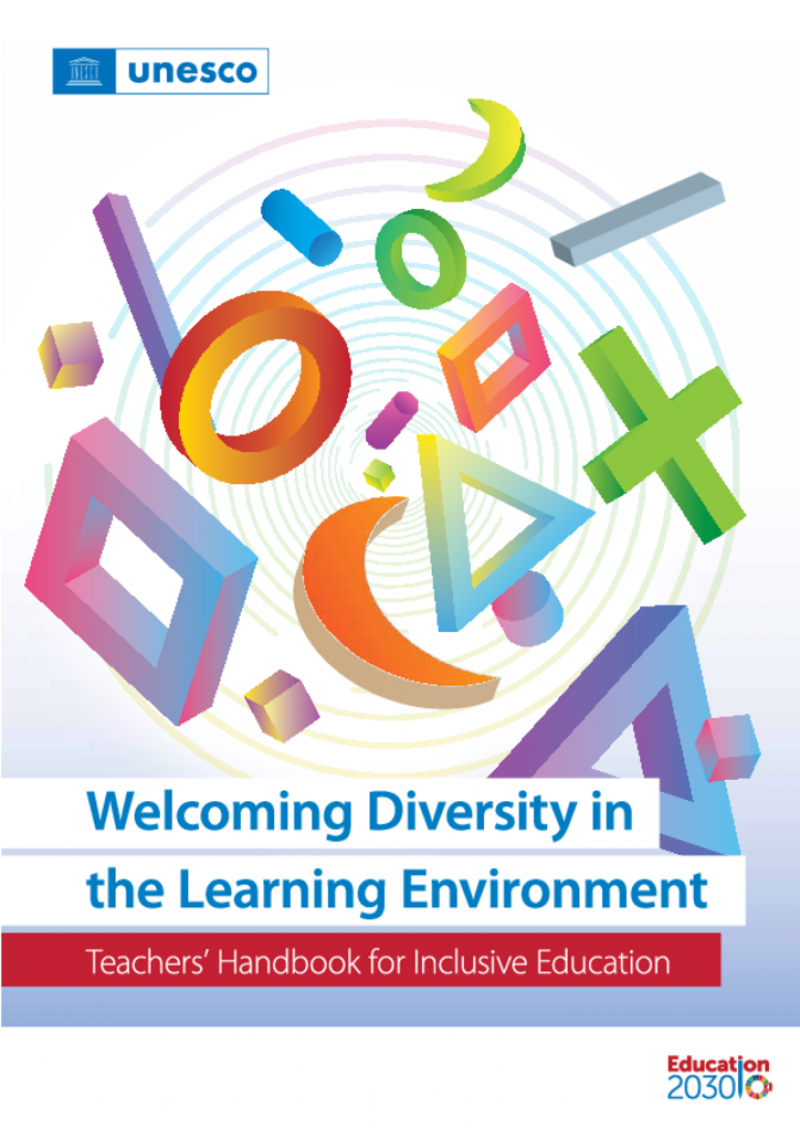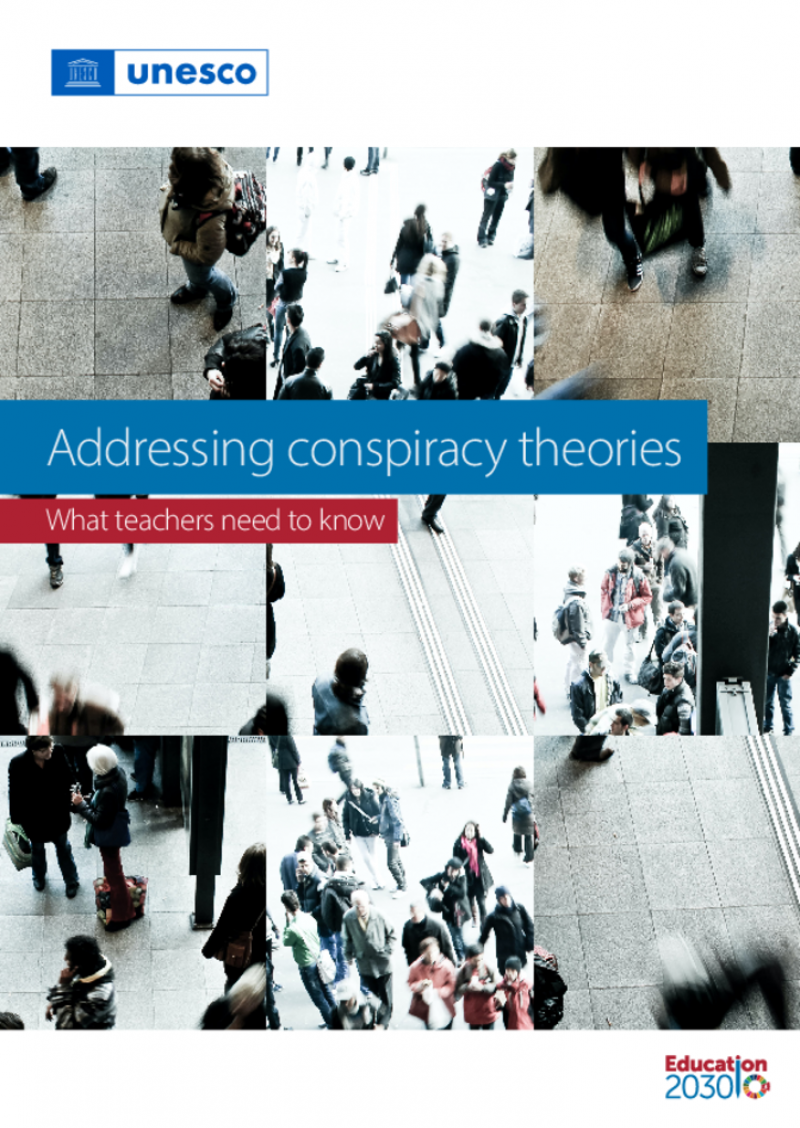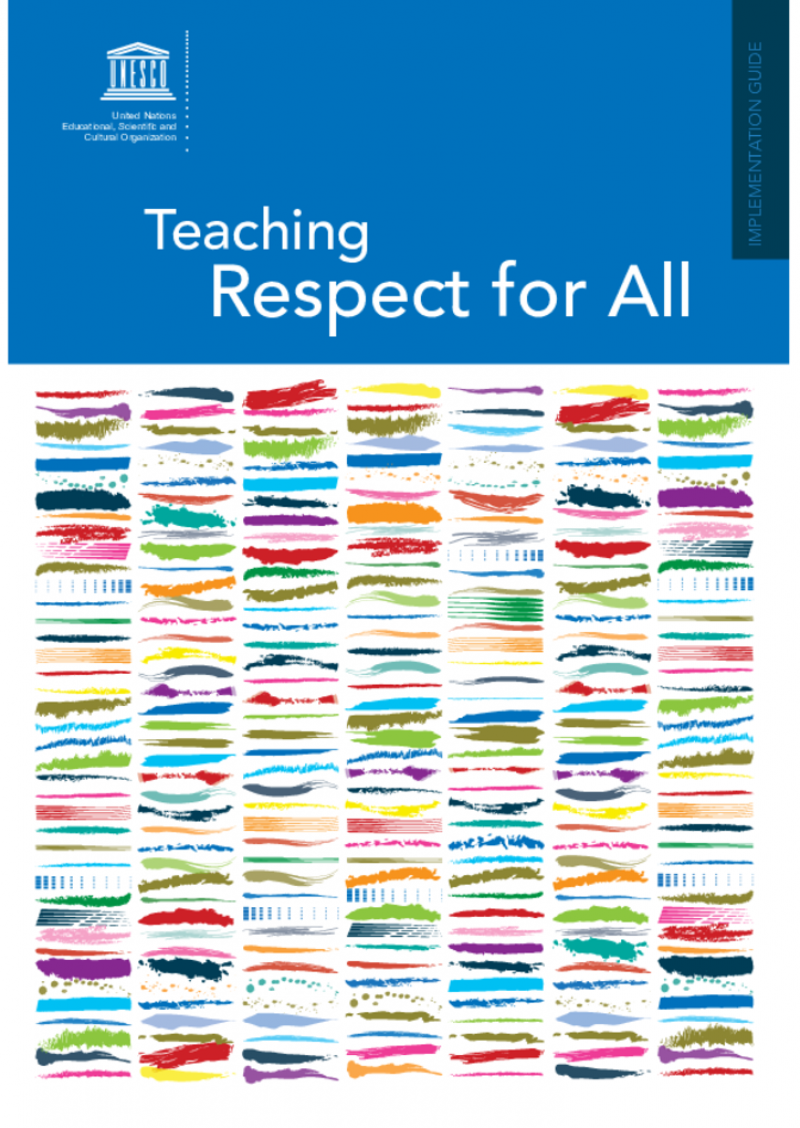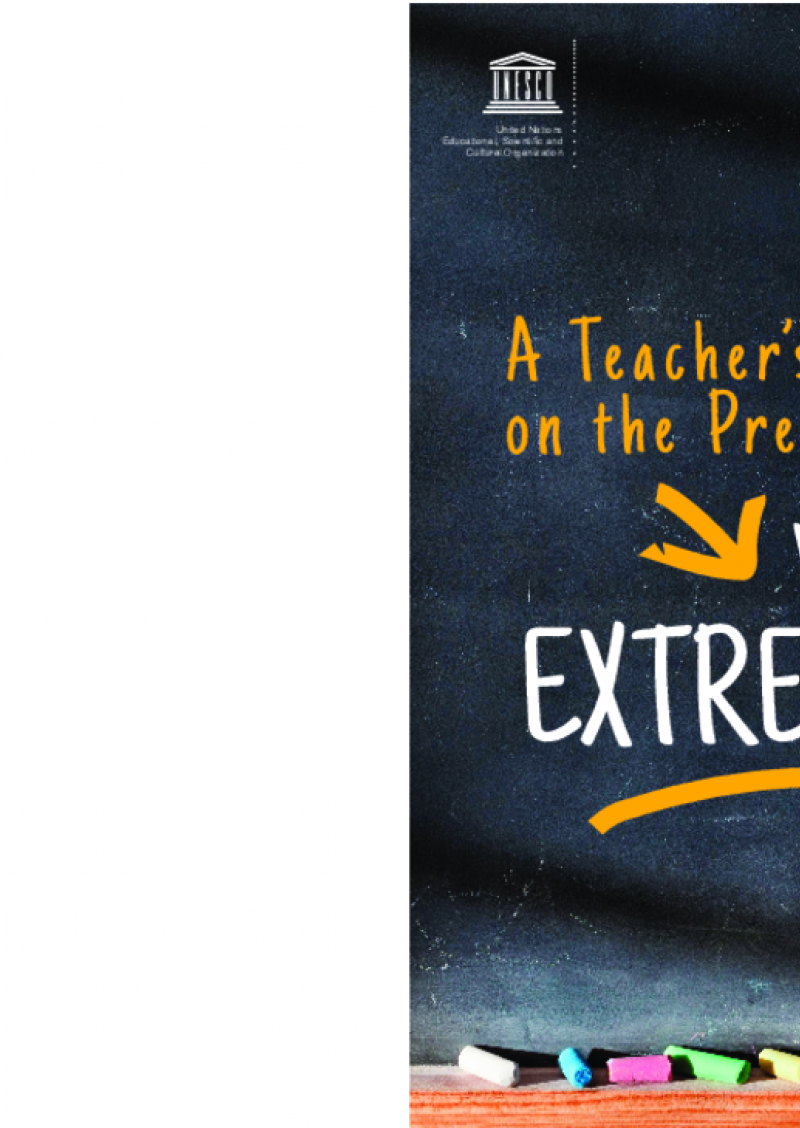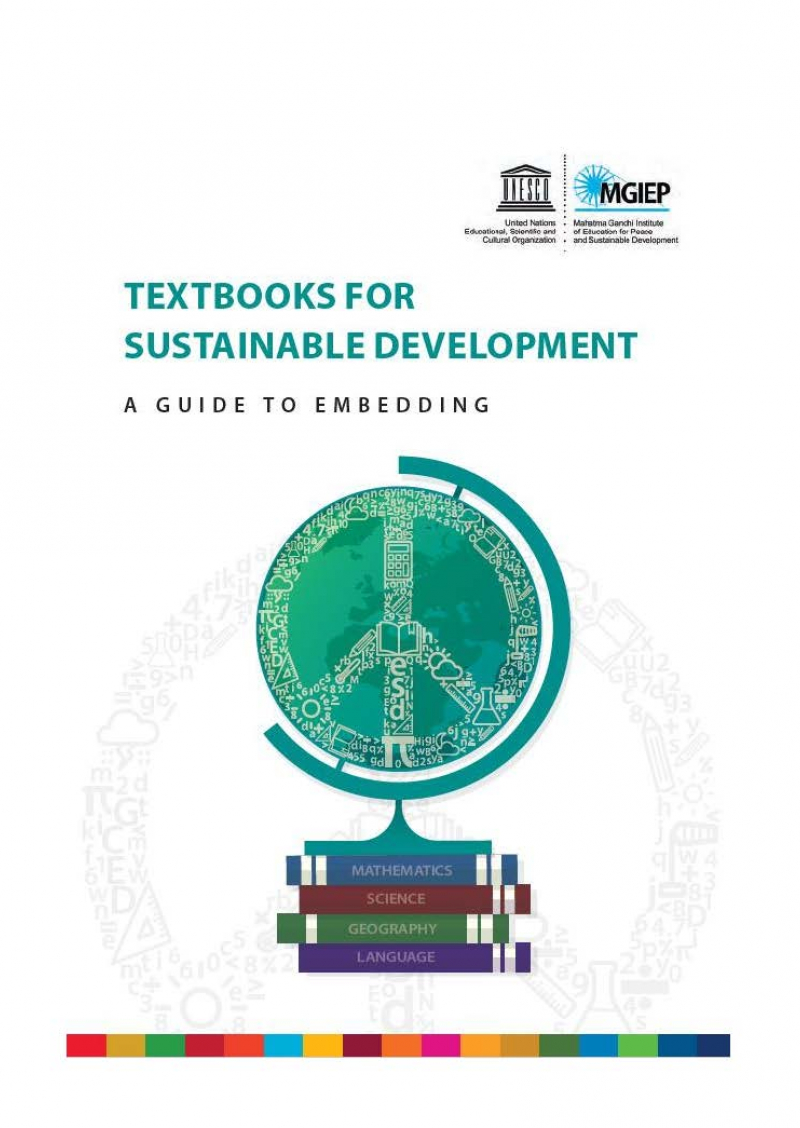مركز موارد المعلمين
عرض 21 - 32 من 32
Gender-responsive pedagogy in early childhood education. A toolkit for teachers and school leaders
The toolkit offers an introduction to gender-responsive pedagogy in early childhood education and serves as a practical guide that can be adapted to any context and the related needs. It provides teachers at early education practical tips to ensure they are able to offer children a learning environment that is free of prejudice and stereotypes. It is a source of ideas that individual teachers and school leaders can put to immediate use in their classrooms and schools. The toolkit was pre-trialled in three countries: Rwanda, South Africa and Zambia, and it can be contextualised for implementation in different African countries.
Welcoming diversity in the learning environment: teachers' handbook for inclusive education
This teachers' handbook is intended to serve as a practical resource to help teachers and teacher educators to gain understanding of the multiple issues of inclusion in their day-to-day work and acquire competencies that facilitate inclusive pedagogy. The handbook is comprised of nine modules – each of which presents the conceptual discussion of key topics related to inclusion and diversity and features some promising case studies, instruments and approaches. It also provides a framework for ensuring learning continuity in the wake of crises and emergencies such as the COVID-19 pandemic, and deals with a range of topics aimed at building the capacities of teachers and teacher educators for recovery and resilience in education systems in the COVID-19 context.
Addressing anti-semitism in schools: training curriculum for secondary education teachers
This publication is part of a four-volume set of training curricula to address anti-Semitism in schools. This volume focuses on the training curriculum for secondary education teachers. Each volume in this set aims to assist trainers in the field of education globally to work effectively towards strengthening the capacity of teachers to prevent and respond to antiSemitism, this specific and highly dangerous type of prejudice directed at Jewish people. In this sense, the curriculum addresses anti-Semitic prejudice and perceptions of Jews, phenomena which often also fulfil a social and political function in societies around the world; it is not material aimed at preparing teachers for intercultural dialogue.
Addressing anti-semitism in schools: training curriculum for vocational education teachers
This publication is part of a four-volume set of training curricula to address anti-Semitism in schools. This volume focuses on the training curriculum for vocational education teachers. Each volume in this set aims to assist trainers in the field of education globally to work effectively towards strengthening the capacity of teachers to prevent and respond to antiSemitism, this specific and highly dangerous type of prejudice directed at Jewish people. In this sense, the curriculum addresses anti-Semitic prejudice and perceptions of Jews, phenomena which often also fulfil a social and political function in societies around the world; it is not material aimed at preparing teachers for intercultural dialogue.
Addressing anti-semitism in schools: training curriculum for school directors
This publication is part of a four-volume set of training curricula to address anti-Semitism in schools. This volume focuses on the training curriculum for school directors. Each volume in this set aims to assist trainers in the field of education globally to work effectively towards strengthening the capacity of teachers to prevent and respond to antiSemitism, this specific and highly dangerous type of prejudice directed at Jewish people. In this sense, the curriculum addresses anti-Semitic prejudice and perceptions of Jews, phenomena which often also fulfil a social and political function in societies around the world; it is not material aimed at preparing teachers for intercultural dialogue.
Addressing anti-semitism in schools: training curriculum for primary education teachers
This publication is part of a four-volume set of training curricula to address anti-Semitism in schools. This volume focuses on the training curriculum for primary education teachers. Each volume in this set aims to assist trainers in the field of education globally to work effectively towards strengthening the capacity of teachers to prevent and respond to antiSemitism, this specific and highly dangerous type of prejudice directed at Jewish people. In this sense, the curriculum addresses anti-Semitic prejudice and perceptions of Jews, phenomena which often also fulfil a social and political function in societies around the world; it is not material aimed at preparing teachers for intercultural dialogue.
Addressing conspiracy theories: what teachers need to know
This document intends to support educators limit the dissemination of conspiracy theories by responding to them when they are shared among learners or within the wider school community.
Teaching respect for all: implementation guide
This Teaching Respect for All Implementation Guide comprises a set of policy guidelines, questions for self-reflection, ideas and examples of learning activities to integrate Teaching Respect for All into all aspects of upper primary and lower secondary education, in an effort to counteract discrimination in and through education. It mainly targets policy makers, administrators/headteachers and formal and informal educators.
Part 2 targets headteachers and education NGO managers, suggesting key areas of intervention with a list of possible actions/activities and Part 3 targets teachers and describes methods of dealing with difficult topics such as racism and discrimination with learners as well as provides suggestions for possible entry points and topics to link the issues of respect for all with particular teaching subjects.
تمكين الطلاب لمجتمعات عادلة: دليل موجه إلى معلمي المدارس الثانوية
يهدف هذا الدليل إلى تزويد المعلمين بمجموعة مختارة من الموارد التعليمية ذات الصلة، المتاحة داخل الفصل الدراسي وخارجه (ملخصات الأنشطة القصيرة والدروس والوحدات التعليمية) التي تهدف إلى غرس مبادئ سيادة القانون بين تلاميذ المدارس الثانوية
يمكن استخدام هذا الدليل أيضًا من قبل المهنيين العاملين في قطاع التعليم غير الرسمي أو العاملين مع الشباب، على سبيل المثال، في المؤسسات الرياضية ومنظمات المجتمع المحلي والعمل الاجتماعي والعاملين في القضاء.
الدليل لمعلمي المدارس الابتدائية متاح هنا.
تمكين الطلاب لمجتمعات عادلة: دليل موجه إلى معلمي المدارس الابتدائية
يهدف هذا الدليل إلى تزويد المعلمين بمجموعة مختارة من الموارد التعليمية ذات الصلة، المتاحة داخل الفصل الدراسي وخارجه (ملخصات الأنشطة القصيرة والدروس والوحدات التعليمية) التي تهدف إلى غرس مبادئ سيادة القانون بين تلاميذ المدارس الابتدائي.
يمكن استخدام هذا الدليل أيضًا من قبل المهنيين العاملين في قطاع التعليم غير الرسمي أو العاملين مع الشباب، على سبيل المثال، في المؤسسات الرياضية ومنظمات المجتمع المحلي والعمل الاجتماعي والعاملين في القضاء.
الدليل لمعلمي المدارس الثانوية متاح هنا.
A teacher's guide on the prevention of violent extremism
This is UNESCO’s first teacher’s guide on the prevention of violent extremism through education. It was developed in order to ensure its relevance in different geographical and socio-cultural contexts. Therefore, it can be used as it is or further contextualized, adapted and translated in order to respond to the specific needs of learners.
The guide seeks to:
- provides practical advice on when and how to discuss the issue of
violent extremism and radicalization with learners;
- help teachers create a classroom climate that is inclusive and conducive
to respectful dialogue, open discussion and critical thinking.
Textbooks for sustainable development: a guide to embedding
This guidebook aims to support textbook authors and publishing houses to produce a new generation of textbooks that integrate education for sustainable development. By doing so, it aspires to make learning relevant and effective. It also contributes to the implementation of the 2030 Agenda for Sustainable Development. Textbook authors and educators are encouraged to use this guidebook as a source of ideas, tools and methods that can help to enrich content and pedagogy and complement their own individual and institutional strategies. The guidebook offers concrete guidance for textbook authors on how to reorient the existing curriculum content towards peace, sustainable development and global citizenship.
